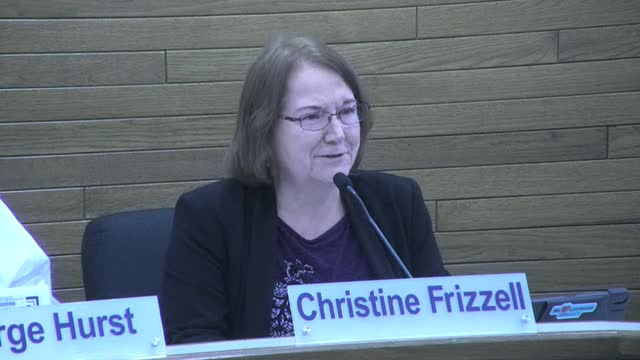Lynnwood holds public hearing on state-required 'step housing' code changes; staff says ordinance limits added requirements
Get AI-powered insights, summaries, and transcripts
Subscribe
Summary
Council held a public hearing on a state-mandated step housing code amendment that would permit transitional, permanent supportive and emergency shelter housing where residential or hotel uses are allowed; staff emphasized the proposed ordinance focuses on documentation and compliance with Commerce guidance.
At the Jan. 13 Lynnwood City Council meeting staff held a public hearing on a proposed code amendment to implement "step housing" as required by state housing legislation. Community Planning Manager Carl Almgren and planner Joe LeBlanc summarized the required changes and described how the city’s proposed ordinance would regulate the four categories commonly included under “step housing”: indoor emergency shelters, indoor emergency housing, transitional housing and permanent supportive housing.
Why this matters: state law stemming from the 2021 housing bills (the presentation cited HB 1220) requires cities to permit certain types of supportive and emergency housing where residential or hotel uses are allowed. The change affects how jurisdictions regulate shelters and supportive housing and seeks to prevent local restrictions that would effectively bar those housing types.
What staff said: Almgren said the state and Department of Commerce clarified that jurisdictions may not add requirements that treat step housing like a different, less-allowed use, and that local ordinances that impose separation or other burdens risk noncompliance with the cited RCW language. To respond, staff proposed a permitting pathway that would verify uses, support tracking and reporting to Commerce, and provide a local zoning certification letter for sponsors. Staff said the fee was set to $193 — equivalent to the city’s zoning certification letter fee — and that the UDC, planned for adoption by June, will include development regulations that support implementation.
Equity and neighborhood concerns: staff said the draft ordinance retains a brief equity analysis requirement so applicants must show proposed projects will not create disproportionate concentrations of similar facilities. Staff also said they removed some project narrative requirements after Commerce comments and reduced the scope of locally required details to avoid imposing state-prohibited barriers.
Examples and existing local uses: Almgren and LeBlanc displayed examples of step-housing projects elsewhere — including the Pad House model in Bellingham for youth ages 13–17 — and noted Lynnwood already has two facilities that fit step housing definitions: Pathways (emergency shelter for women) and Trinity Place (transitional housing). Almgren emphasized the ordinance would clarify where those uses are permitted rather than create an entirely new use in the city.
Members of the public and council discussion: commenters at the hearing expressed a range of views. David Barber (resident) asked whether state operating standards exist and suggested neighborhood agreements and public notice; staff said Commerce guidance limits conditions jurisdictions can impose but that monitoring and reporting are possible through the local permit. Council Member Derica Escamilla asked why state law prevents buffer requirements; Almgren replied the state intends to prevent jurisdictions from “treat[ing] affordable housing differently than market rate housing.” Council Member Patrick Decker raised concerns about potential misuse of private homes and asked whether the city can limit occupancy; staff said occupancy limits are an area of state-level clarification and that local occupancy rules for residential property remain subject to other state law and later rulemaking.
Process and next steps: Almgren reminded council the Planning Commission recommended approval and that staff would return to council for ordinance consideration in two weeks. He also said the UDC implementation is a multistep process through 2025 and that the step-housing permit would be designed to track units for Commerce reporting and to enable local documentation of authorized operations.
Council took no final vote on the ordinance at the Jan. 13 meeting; the public hearing was closed so council can deliberate at an upcoming work session and consider adoption at the next business meeting.
